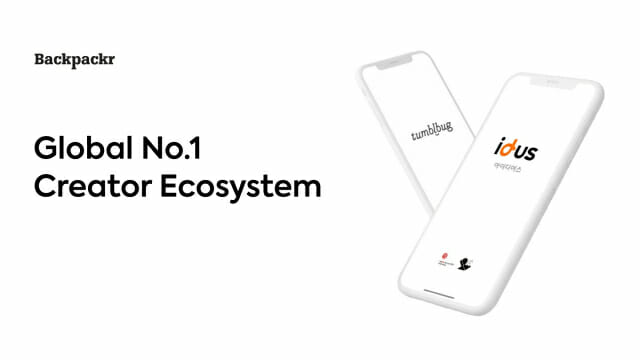[해외 DS] 학생들이 직접 ChatGPT 사용해 봐야 AI 교육 효과 있어
'정면돌파', AI 도구를 수업에 적극적으로 도입한 한 교수 ChatGPT 보다 인간의 지성이 더 우수함을 경험한 학생들 빠른 정답 보다 느리지만 두뇌를 자극하는 과정을 인내해야
[해외DS]는 해외 유수의 데이터 사이언스 전문지들에서 전하는 업계 전문가들의 의견을 담았습니다. 저희 데이터 사이언스 경영 연구소 (GIAI R&D Korea)에서 영어 원문 공개 조건으로 콘텐츠 제휴가 진행 중입니다.

ChatGPT의 ‘전문가스러운’ 텍스트 생성 능력은 고등 교육계에 새로운 고민을 안겨주었다. AI 도구를 단순히 금지하고자 하는 유혹에 빠지기 쉽지만, 크리스토퍼 하웰(Christopher Howell) 교수는 엘론 대학교의 종교학 수업에서 ‘정공법’을 택했다.
교수의 입장에서 학생이 ChatGPT를 평가한 결과, “실망스럽다”
그의 선택은 학생들이 직접 ChatGPT를 활용하도록 하는 것이었다. 그 이유는 명확했다. 첫째, 학생들이 어쨌든 텍스트 생성 AI를 사용할 것이기 때문에 이를 금지하는 것은 사실상 불가능한 점을 인정했다. 둘째, 책임감 있게 사용하려는 학생들조차(즉, 부정행위를 일부러 저지르지 않는 학생들도) 이 기술에 대한 올바른 이해가 부족했다. 놀랍게도 많은 학생들이 ChatGPT를 완벽한 검색 엔진으로 오해했는데, 한 학생은 ChatGPT를 연구 도구로 활용하다가 가짜 출처를 논문에 포함하는 실수를 범하기도 했다. 하웰 교수의 목표는 학생들에게 모델의 결함에 대한 교육을 통해 이러한 실수를 방지하는 것이었다.
하웰 교수는 AI 기반의 과제를 구성했다. 각 학생은 ChatGPT를 활용해 자신의 에세이를 작성하고, 지시에 따라 ‘채점’하는 과정을 거쳤다. 학생들은 마치 교수가 평가하는 것처럼 문서에 코멘트를 남기도록 요청받았다. 그런 다음 하웰 교수는 몇 가지 질문을 던졌다: ChatGPT가 출처를 혼동한 적이 있는가? 그렇다면 어떻게 알 수 있었는가? 소스를 올바르게 활용했는가? 실제 출처를 잘못 이용한 적이 있는가? 주장은 설득력이 있었는가, 아니면 논리가 빈약했는가?
결과는 놀라웠다. 63개의 에세이 모두 오류가 발견됐다. 대다수의 학생들은 이 사실에 놀랐고, 기술에 대한 환상이 많이 깨졌다고 전했다. 이러한 과제는 AI 리터러시(이해력)와 ChatGPT의 책임 있는 활용뿐만 아니라 수업에서 AI의 활용, 에세이 작성의 목적, 기계 시대에서 인간의 존재 이유 등에 관한 학생들의 호기심을 자극했다. 한편 ChatGPT의 에세이를 평가하는 과정을 통해 학생들은 자신이 AI 도구보다 훨씬 더 똑똑하다는 것을 깨달았는데, 실험 전에는 ChatGPT의 유창함에 속아 자신의 능력을 저평가하는 학생들이 많았었다. 다른 교실에선 아직 이를 인식하지 못한 학생들이 많을 것으로 예상된다. 하웰 교수는 위의 유사한 경험을 통해 학생들에게 긍정적인 자아 인식을 심어주어야 하며, 그들의 관점과 비판적 사고가 중요하다는 것을 이해시키는 일이 시급함을 강조했다.
AI 활용과 두뇌 발달, 학생의 성장을 위한 고민
학교 공부에서 가장 중요한 요소는 교재나 성적이 아니다. 학생이 과제를 수행하는 동안 겪는 실제 사고 과정이 단순히 ‘해치운’ 과제를 제출하는 것보다 더 중요하다는 데에는 이견이 없을 것이다. 논리 전개를 유도하는 것이 학교 교육의 중추적인 역할이기 때문이다. 학생들이 ChatGPT를 사용하여 과제를 대신 수행하면 이러한 인지적 경험을 놓칠까 많은 교육자가 걱정하는 이유다. 수학 문제를 풀거나, 자료를 종합하거나, 시를 쓰는 것은 학생의 두뇌를 향상하게 시키는 과제의 예다. 학생이 과제를 수행하면서 뉴런이 물리적으로 새로운 연결을 형성하여, 다음번에 더 빠르고 쉽게 작업할 수 있을 뿐만 아니라 학습 능력과 생산성도 실제로 증가한다.
2018년 유럽 연합의 교육에 대한 정책 보고서(AI의 잠재적 영향에 관한)는 학생 시절의 학습 과정이 인지 형성 단계에서 매우 중요한 시기라고 설명한다. 또한 이 보고서는 어린 두뇌가 중요한 발달 단계에 있는 동안 인공 기술에 의존하는 법을 배우면 근본적인 영향을 야기할 수 있다고 경고했다. 즉, 학생들이 학업에 스스로 노력하지 않으면 스스로 문제를 해결하는 데 필요한 뇌 구조를 형성하는 데 실패할 수 있다는 뜻이다. 2022년에 발표된 더 최근의 인공지능 프런티어(Frontiers in Artificial Intelligence) 논문도 비슷한 결론에 도달했다. 저자들은 ‘인지 오프로딩(cognitive offloading)’, 즉, 작업을 AI에 맡기면 즉각적인 작업 수행 능력은 향상될 수 있지만 장기적으로는 해로운 영향을 미칠 수 있다고 분석했다. 문제 해결 능력 저하, 기억력 저하, 심지어 새로운 것을 배우는 능력의 저하가 부정적 영향에 포함된다.
ChatGPT는 인간이 세상과 관계를 맺는 데에 필요한 감각이 없다. 단순히 ‘올바르게 들린다’는 열정 없고 무감각한 대답 보다 인간의 사유는 세상과의 상호작용을 통해 훨씬 더 동적이고 심오하다. 앞으로 챗봇이 올바른 답에 더 가까워질 것이라는 생각에는 반론의 여지가 없으나, 교육 과정에서 학생들은 올바른 답을 찾는 데 초점을 맞추기보단 올바른 사고 과정을 습득하는 데에 집중해야 비판적인 사고를 일상생활에 적용할 수 있는 의식적인 성인으로 성장할 수 있는 것이다. 단기적으로 삶을 편하게 해주는 기술에 의존하면 미래의 일을 위한 능력을 개발하지 못해서, 장기적으로는 생성형 AI와 경쟁할 수밖에 없는 삶을 살아가야 한다. 이런 의미에서 하웰 교수의 실험은 교육자와 학생 모두에게 큰 경종을 울린다.
To Educate Students about AI, Make Them Use It
A college professor and his students explain what they learned from bringing ChatGPT into the classroom
ChatGPT’s ability to produce humanlike text on command has caused a crisis in higher education. Teachers and professors have been left bewildered, wondering what to do about a technology that could enable any student to fabricate assignments without actually learning. Although there is an understandable temptation to simply ban it from the classroom, I (C.W. Howell) took an alternative approach in my religious studies classes at Elon University.
I decided, instead, to have the students engage with ChatGPT directly. I chose to do this for two reasons. First, it would be difficult if not impossible to actually forbid it; students were going to use the text-generating AI no matter what. Second, unfortunately, even the students who tried to use it responsibly (that is, without just cheating wholesale) did not really understand the technology. A common and critical error is that many students mistakenly believe it is an infallible search engine. One student tried to use ChatGPT as a research tool and, unaware that it could confabulate fake sources and quotes, incorporated fraudulent information into an otherwise innocent paper. My goal was to prevent this type of misstep by teaching students about the flaws in models like ChatGPT.
To do so, I created an AI-powered class assignment. Each student was required to generate their own essay from ChatGPT and “grade” it according to my instructions. Students were asked to leave comments on the document, as though they were a professor assessing a student’s work. Then they answered questions I provided: Did ChatGPT confabulate any sources? If so, how did you find out? Did it use any sources correctly? Did it get any real sources wrong? Was its argument persuasive or shallow?
The results were eye-opening: Every one of the 63 essays contained confabulations and errors. Most students were surprised by this, and many were less impressed by the technology than they had been before doing the homework. I hope that other professors and teachers might benefit from incorporating assignments like this into their curricula as well.
In addition to teaching AI literacy and the responsible use of ChatGPT, this assignment also stimulated exciting and deeply insightful reactions from the students—about the use of AI in class, the purpose of essay-writing, and being human in an age of machines. I asked two of them, Cal Baker and Fayrah Stylianopoulos, to share their perspectives and insight on AI in education.
Cal Baker, sophomore:
The most crucial element of schoolwork is not the course material or grade: The actual thinking processes a student undergoes while working through an assignment are more important than simply turning in the completed task. The details in the work seldom matter as much as this thinking. If students use ChatGPT to do assignments for them, I worry that they will miss out on these cognitive experiences.
In most cases, the material itself is seldom why a school assignment was given in the first place; rather, it is what occurs in a student’s brain as they complete the assignment that is the backbone of schooling. Doing a math worksheet, synthesizing sources or writing a poem are examples of assignments that improve a student’s brain. As a student works, their neurons form new connections, allowing them to work more quickly and easily the next time around, as well as increasing their capacity for further learning and productivity.
Completing assignments with an AI like ChatGPT could harm a student’s cognitive development. A 2018 European Union policy report on the potential impacts of AI on education explains that a student’s brain is in a “critical phase” of development. It further warns of “quite fundamental consequences” if young brains learn to rely on artificial cognitive technologies while in their critical development phases. In other words, if they don’t put their own effort into schoolwork, students might miss out on developing the brain structures needed to solve problems for themselves. A more recent Frontiers in Artificial Intelligence paper, from 2022, reached a similar conclusion: the authors speculate that while “cognitive offloading” tasks to AI “can improve immediate task performance, it might also be accompanied by detrimental long-term effects.” These effects might include diminished problem-solving abilities, worse memory and even a decrease in one’s ability to learn new things.
On the surface, the more an individual practices something, the better at it they are likely to become. But on a deeper level, the processes that go on in a student’s brain as they undertake these assignments are the most important part. If a student turns to AI instead of doing the work themself, the neural pathways they would use for that assignment will deteriorate instead of being formed and retraced. This will ultimately end up hurting students. If they depend on technology that makes their lives easier in the short term, they will fail to develop their abilities for future work, thereby making their lives more difficult in the long term.
Fayrah Stylianopoulos, sophomore:
Although ChatGPT is certainly dangerous if abused, I recognize that it has the potential to support students on their academic journeys. At its best, ChatGPT can be a versatile resource, introducing fresh, interactive ideas into the classroom for both teachers and students to enjoy. For instance, it can suggest unique learning experiences based on standardized objectives, drafting lesson plans and prompts for student assignments. ChatGPT can even quiz students on their own class notes (in short answer or multiple-choice format no less), although it is worth noting that students might be better served cognitively by writing their own questions and recall cues.
However, the ubiquity of AI in academic spaces compels students to reflect on who they are, and on what ChatGPT is.
AI-generated text can sound right, but sequential plausibility is not the same thing as truth. Grading ChatGPT’s essay for this assignment made it apparent that students, for this reason and others, are much smarter than large language models like ChatGPT. Unfortunately, few realize this. Many students feel insignificant or unintelligent when faced with such technology. We need to affirm students and instill in them the confidence to realize that their perspectives matter, and their critical thinking cannot be automated.
Some critics have likened large language models like GPT-3 to trained parrots that repeat familiar phrases without an inkling of what their subtle contexts could mean to human listeners. If this passionless and detached precedent of simply “sounding right” is rewarded in classrooms, it will have a tragically homogenizing effect on human thinking and dialogue. I believe there is something to be said for the essential, profound stake we share in the fate of this world, which is something humans (and parrots too) have, but that ChatGPT does not. Despite all its incredible ability, ChatGPT has no sense of relationship to us or to the world. How can such a detached voice have anything to offer us that we do not already possess?
I worry that if students over-rely on machine learning technology, they will learn to think like it, and focus on predicting the most likely “right answer” instead of thinking critically and seeking to comprehend nuanced ideas. Science fiction often depicts artificial intelligence taking over society, leading to a technological singularity (where technology irrevocably surpasses humanity) and the end of the world. But I’m not worried about AI getting to where we are now. I’m much more worried about the possibility of us reverting to where AI is.



























